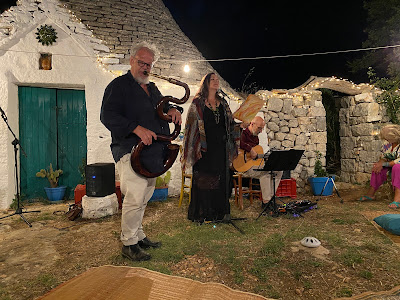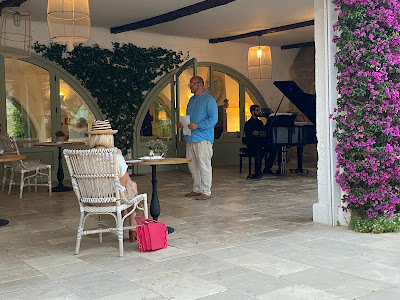Oxford in the early ‘70s was very different from what I imagine it is now. This is the tale of my time in this august institution.
Table of Contents:
Episode 06 - Academia.
Introduction.
There are a number of peculiarities about the Oxford education system and the Chemistry degree in particular:
- For historical reasons, all first degree courses in Oxford lead to a B.A. degree, even if they are in a science subject: nobody gets a B.Sc. at Oxford.
- The three terms are named Michaelmas, Hilary and Trinity and are only eight weeks, making for long holidays.
- Seven years after matriculation you also get awarded an M.A. basically for not falling under a bus, sending in a cheque for a modest sum and attending a ceremony. See: Master of Arts (Oxford, Cambridge, and Dublin). So technically I am entitled to Mark McLellan M.A. (Oxon).
- Chemistry is a four year course. A normal Part I three year course followed by a Part II project, normally in one of the three main labs (Organic, Inorganic, Physical). Because of my interest in archaeology I opted for an outlier, the Research Laboratory for Archaeology and the History of Art.
Year one.
The first formal event was Matriculation where we were inducted into the university. This required us to dress up in academic garb called subfusc and attend a ceremony in the Sheldonian Theatre (designed by a young Sir Christopher Wren) conducted in Latin (of course).
The education consisted of 10 hours of lectures: two hours each day Monday to Friday, 9 o’clock and 10 o’clock. Then one day a week spent in a laboratory doing actual experiments. There was one tutorial a week lasting an hour for which you had to prepare an essay.
The essay was basically transcribing chunks from one of the three substantial textbooks and then presenting them to the tutor who went through them and corrected any mistakes.
There was no correlation between the lectures and the tutorials. You might have a lecture on a topic in the autumn term and a tutorial on that same topic in the following spring, or vice versa.
The tutors themselves were academics who may well have been experts in their fields but lacked the skills required to engage with students. Possibly in arts subjects there might be intellectual discussion and banter but for a science that just does not apply. This was a rubbish way to impart knowledge!
Being a studious youth, I worked hard and at the end of first year exams, known as Prelims for which we also had to wear subfusc), I got a decent grade and according to my tutor was capable of getting a very good degree.
"I am sure that you are capable of getting a very good degree indeed and that reading now will repay you well". Verbally, he said I was on track for a First.
Year two.
In the second year, this dreadful educational system continued to grind away at my enthusiasm for chemistry. At school I had an inspirational teacher, Mr Annable, and I loved the subject with its mixture of theory and practice. The Oxford approach was disappointing to say the least.
Apologists for the system claim that you are no longer spoon fed like you are at school and have to be self directed. I would argue that in fact it was more like "sink or swim" with no guidance, support or coaching delivered by people with dubious presentation skills and shakey didactic abilities. A very poor approach to imparting knowledge, understanding and enthusiasm.
I read widely in other areas such as psychology, anthropology, child development, sociology, and at the end of my second year asked if I could change subject. The answer was “No” since I was already two years into my course and funding from the local educational authority would not be forthcoming. So I gritted my teeth and stuck it out with no great enthusiasm.
There were no exams at the end of the second year, which which meant a certain degree of freedom to enjoy other aspects of life. Many of the colleges had Amateur Dramatic groups and in the summer term I was going to two or three productions every single week.
Going back through my old programs I discovered that I had not seen anyone who later became famous apart from Oz Clarke (now better known as a wine presenter) but I did see a fellow pupil from my school, Jane Broughton, who came up to Oxford the year after me and appeared in “Saksoon” at St Edward’s.
Year three.
By the third year, I was so disillusioned with the teaching that I stopped going to lectures completely! Instead, I spent my time reading large numbers of science fiction books purchased from various secondhand bookshops.
Interestingly, no one enquired how I was getting on or noticed that I wasn’t attending lectures. The indifference and lack of interest shown by the college and my primary tutor, now that I look back on it, was frankly appalling.
As a consequence my marks in Schools (aka Finals) were poor, on the border between second and third class honours.
"Your performance in Schools was a little disappointing I am afraid and you will need a good Part II to ensure that you get the 2nd of which you are capable. [...] I hope you will make a real effort for it would be a nonsense for a man of your intelligence not to get a Second."
It would all hang on how I did in my Part II, fourth year project.
Year four.
The project had a decent remit to test the the effects that burial might have on pottery and the possible impact on dating techniques.
The project went well enough but was not helped by losing my lab notebook on the bus whilst visiting London. I had a last minute, final term panic re-creation of the experiments. The viva didn't go particularly well and unfortunately the thesis was not good enough to push my marks over the boundary into Second so I scraped through with a Third Class Honours.
It was, however, good enough to get a paper published the following year:
Hedges, R.E.M., and McLellan, M. “Cation exchange capacity of fired clays and its effect on the chemical and radiometric analysis of pottery.”
Abstract
Measurements of the exchange capacity of several clay types for firing temperatures up to 1000/sup 0/C are presented. Consideration of these, together with measurements on archaeological material, shows the possibility for significant alteration of the trace element composition for pottery. The implications of this for provenance determination and thermoluminescent radiometry are considered.
Archaeometry; (United Kingdom); Journal Volume: 18:2. [More…].
So Oxford turned a keen, hard working pupil capable of getting a First into an unhappy, disillusioned student who scraped a Third.
All this for a piece of paper that has sat in an envelope for 50 years. No one has ever asked for it or even for proof that it exists.
Am I bitter? Too f***ing right I am.
Next: 07 Epilogue - What happened next. Life after Oxford was so much better.


























